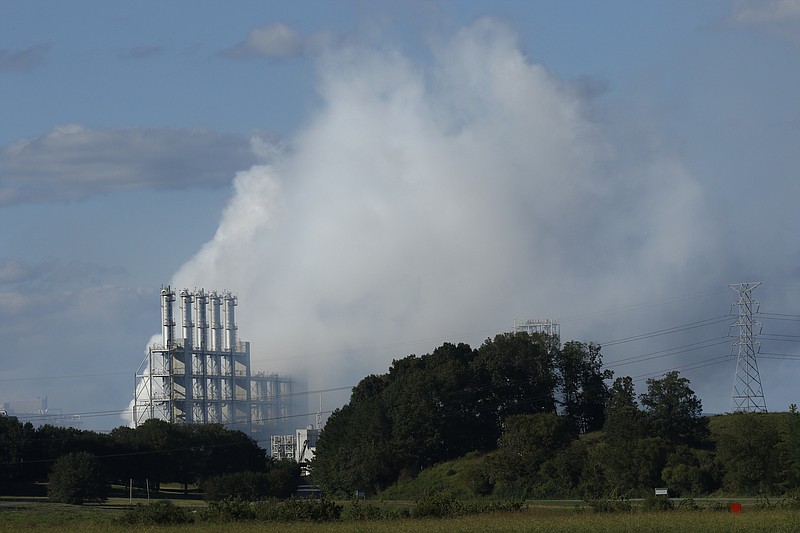Two state investigations are ongoing three months after two incidents at the Wacker Polysilicon plant in Charleston, Tenn., sent more than a dozen people to local hospitals, closed area roads and Interstate 75, and forced residents and school children to shelter in place.
A Sept. 7 explosion at the site released a cloud of hydrochloric acid into the air a week after five workers were sent to the hospital with chemical burns.
The Tennessee Department of Environment and Conservation and the Tennessee Occupational Safety and Health Administration are investigating the incidents, and Wacker said it has commissioned its own, independent probe. It is unknown when the state investigations will be finished and made public.
"We take every investigation very seriously, and we investigate every incident that is reported to us," TDEC spokeswoman Kim Schofinski wrote in an email.
When the Times Free Press asked Wacker about the Environment and Conservation Department investigation, site manager Mary Beth Hudson said she's "not aware of an investigation with TDEC."
That contradicted Hudson's earlier statement to the Times Free Press that the company had complied with an agency information request from TDEC and was awaiting its final report.
In her email, Schofinski confirmed that "yes, an investigation is ongoing at the Wacker facility." She also confirmed Wacker employees are aware of the investigation.
Schofinski and TOSHA spokesman Chris Cannon said they couldn't discuss details until the investigations are finished. However, they agreed to describe how the investigative process typically works.
The state agencies have six months from the start of their cases to complete their findings and issue any citations. The results of Wacker's internal investigation will not be made public, Hudson said.
State investigations can take as little as a day and as long as six months, Cannon wrote. However, investigators focus less on how long an investigation takes and more with examining any evidence it turns up.
"The time we spend on a given investigation varies based on the complexity of the individual case," Schofinski wrote. "While we try to be as expeditious as possible, we are more focused on making determinations that are legally sound, rooted in fact and protective of the environment."
The TDEC and TOSHA investigators are looking at different aspects of the incidents.
"TOSHA investigates allegations of imminent danger, workplace fatalities, injuries resulting in hospitalization, amputation, or loss of an eye, employee complaints, referrals, and programmed inspections in high hazard industries," Cannon wrote.
If the agency finds the company's negligence led to workers' injuries, it can issue fines of up to $70,000.
TOSHA personnel will physically inspect the area to see the equipment and processes involved, interview employees, talk to management, shoot photographs and possibly take samples and measurements, Cannon wrote. Investigators then will determine the root cause of the incident and issue citations if the company was negligent.
TDEC investigates the incidents as a whole and their impact on the environment. Investigators then will determine what actions are warranted and if the company's permits should be reviewed at the end of the investigation. They will use many of the same methods as TOSHA to determine what happened and see if specific regulatory requirements were met.
Contact staff writer Mark Pace at mpace@timesfreepress.com or 423-757-6659. Follow him on Twitter @themarkpace and on Facebook at ChattanoogaOutdoorsTFP.
